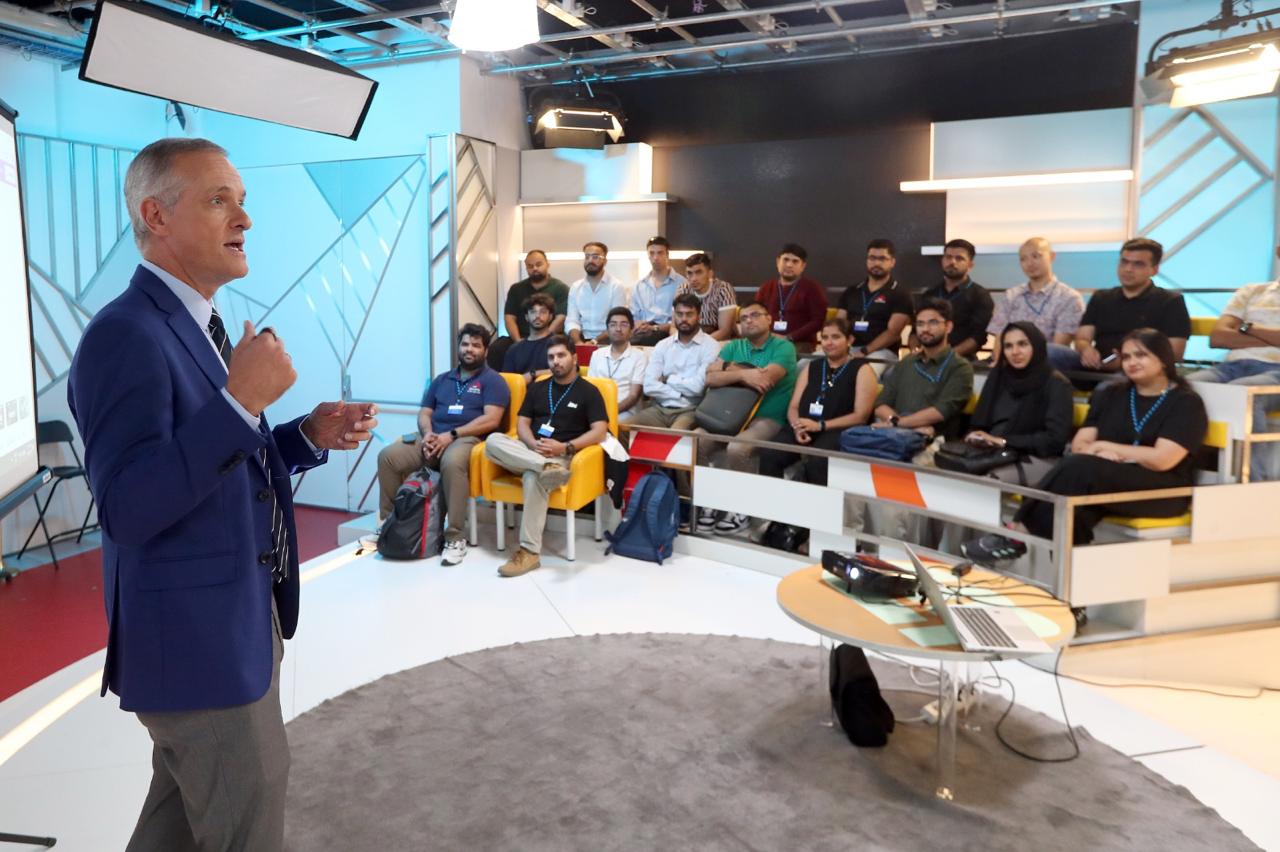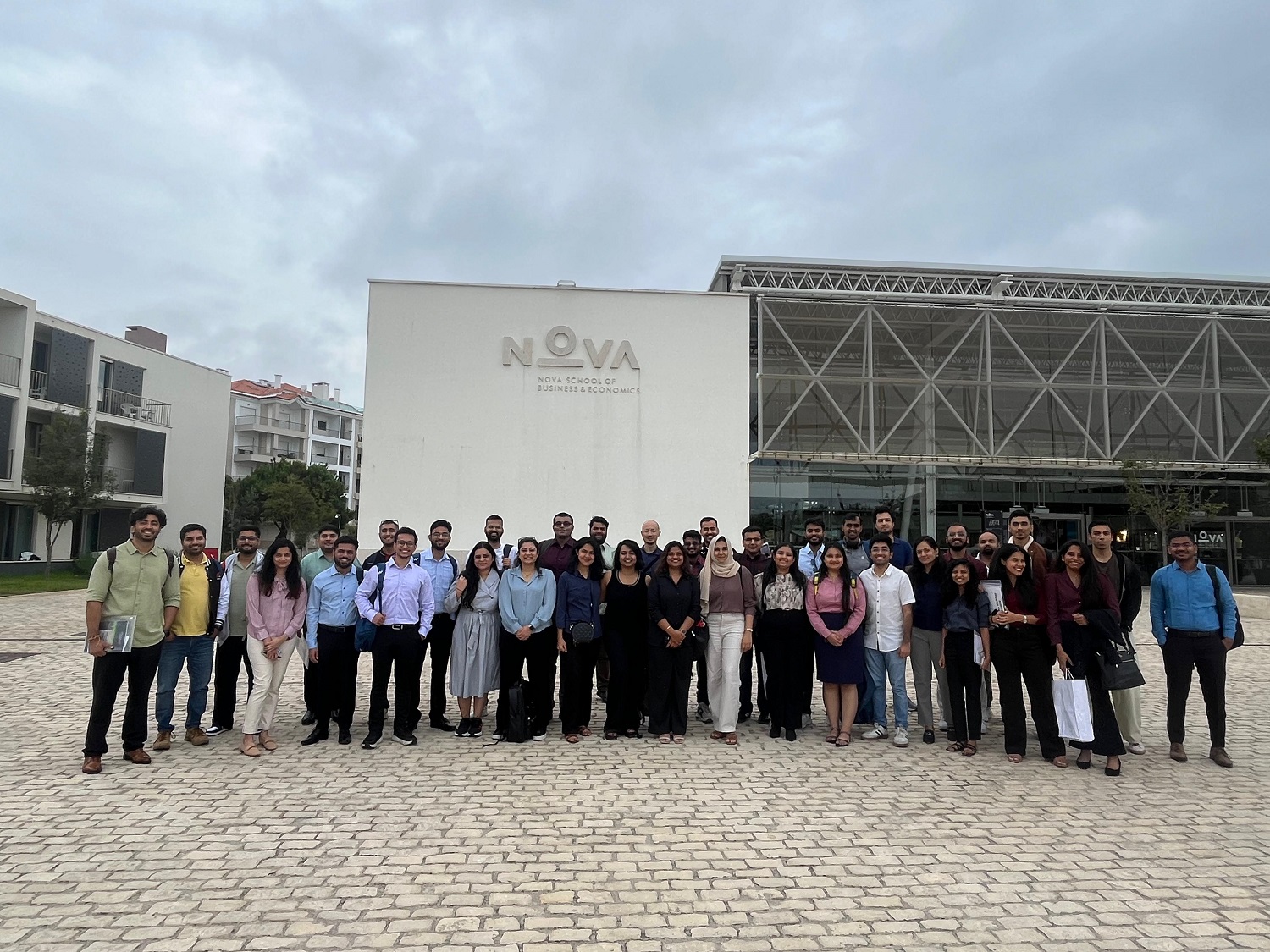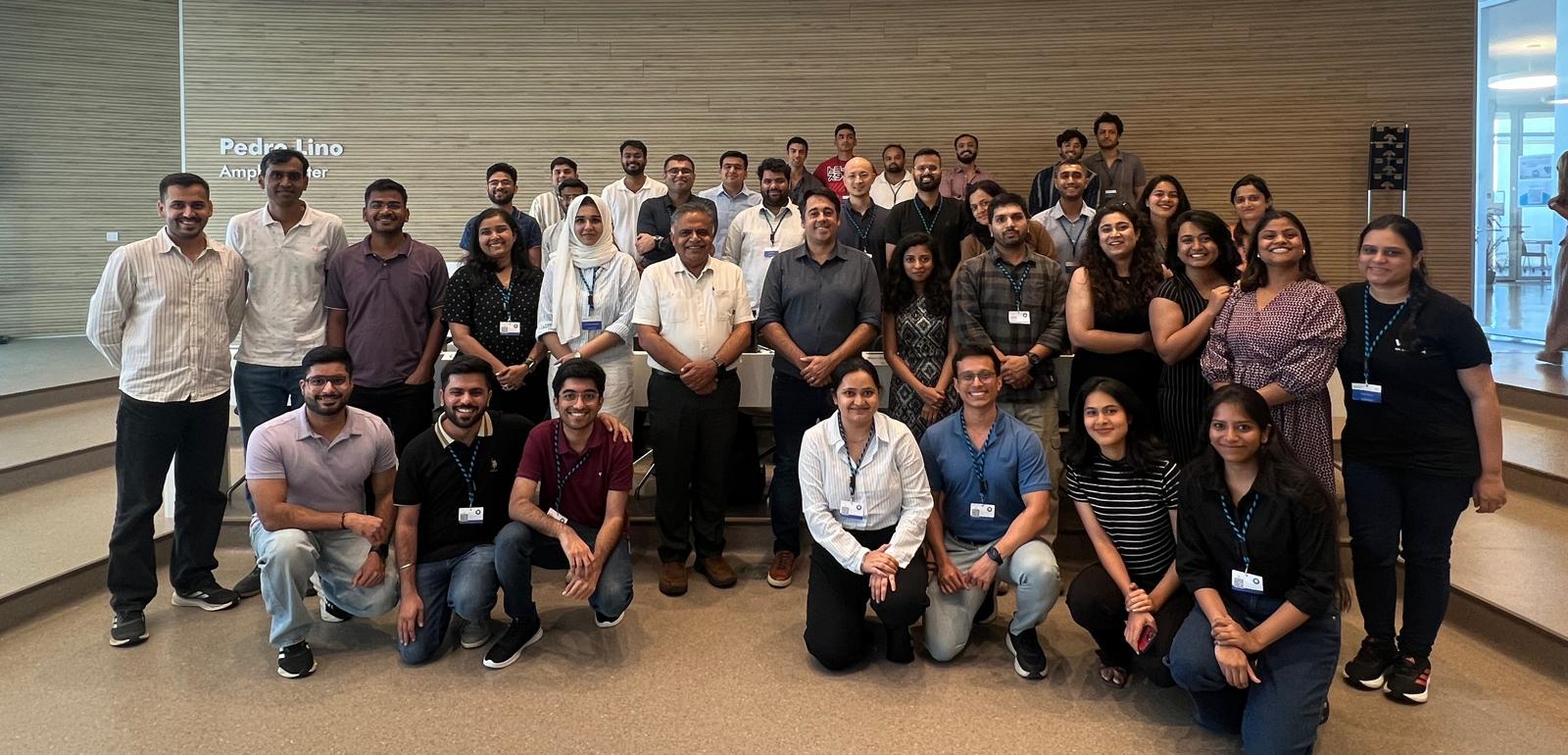The first three days featured sessions on international trade, macroeconomics, and Portugal’s growth outlook
Executive Post Graduate Programme in Management (EPGP) International Immersion Programme at Nova School of Business & Economics, Portugal, opened with an engaging mix of academic insights and industry experiences. A batch of EPGP students, accompanied by Prof. Abhoy K Ojha, OB&HRM area, began their journey by exploring global business theories, macroeconomic frameworks, and the Portuguese outlook on growth and innovation.

The opening lecture was delivered by Prof. Emanuel Gomes, Professor of Strategy and International Business at Nova SBE, who introduced participants to theories of international trade and business, the globalization of markets, and the born-global idea. A key takeaway was the thought that “the globe can be my home base”, the concept of revealed comparative advantage, and how brand perceptions shift across geographies, for instance, Audi is considered a value brand in Europe but a luxury brand in India. The discussion underscored that international trade is not a zero-sum game; instead, it creates opportunities for all parties by leveraging their comparative strengths. He also highlighted how cultural differences, far from being barriers, often unlock new ways of working and sources of advantage. Dr. Emanuel Gomes is a leading scholar in International Business and Strategy, and he has published extensively on internationalization strategies such as mergers and acquisitions, strategic alliances, and exporting. His research interests are in product-service innovation, strategic agility, and micro foundations of international business, and he has published three books and over fifty peer-reviewed papers in leading journals.

On day two, the focus turned to politics, macroeconomics, and society in Europe, with Prof. Pedro Brinca, macroeconomics area, Nova SBE, leading an insightful session. Students explored how to read key indicators such as GDP (real vs. nominal), purchasing power parity, productivity, and demographics, while also understanding why institutions and policy play a decisive role in shaping economic outcomes. He reminded, “When you plan on investing, always think of fundamental value,” setting the tone for a discussion that linked theory to practical assessment of economies. Prof. Brinca is deeply engaged in shaping economic discourse in Portugal through his research, advisory roles, and columns in national media.
Later in the day, Prof. Nadim Habib, Strategy and Entrepreneurship area, challenged participants to reflect on the “Challenges in European Business.” He opened the session with the provocative question, “Why does it take a crisis to lead change?” he unpacked three enduring lessons from the pandemic: change can and should be treated as a lever; people adapt more quickly than expected; and most firms, unfortunately, settle for minimal change just to survive. He then classified change into three critical dimensions: vision (how we shape the market and environment), strategy (how we reconfigure to adapt), and operating model (how we deliver value). A seasoned practitioner and academic, Prof. Habib brings perspectives shaped by leadership roles in banking, telecom, consulting, and executive education, and is widely recognized for his work on agility and innovation in management.

The third day shifted the lens to Portugal Outlook & Business Safari. Rosália Amorim, Director of Brand, Marketing, and Communication at Ernst & Young, Portugal and a former senior journalist, outlined the country’s near-term promises across four areas: tourism, which contributes nearly 12% to GDP; renewable energy and green infrastructure; services driven by talent, technology, and strong infrastructure; and a wave of digital transformation and sustainability-focused startups. Students also discussed Portugal’s attractiveness for Foreign Direct Investment (FDI), with special focus on institutions such as AICEP and IAPMEI that play a pivotal role in facilitating business. The day concluded with a Business Safari to Medialivre, one of Portugal’s largest media houses. Here, the group witnessed a live broadcast and gained insights into how a technology-first, lean newsroom delivers efficiency while maintaining strong local relevance. The visit also brought a special highlight, as the IIM Bangalore cohort was featured in a local Portuguese newspaper.
